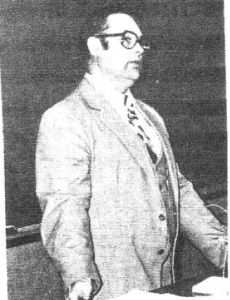The Opportunities and Challenges of Marketing toward Millennial Shoppers
The food industry is and has been changing rapidly over the last few years, and for a good reason. The Millennial generation has begun to mature to a point where many of them are “Primary Grocery Shoppers”. Having grown up in a world where information gathering and communication can happen at a high rate of speed, Millennials can gain exposure to new things more rapidly than any other generation of shoppers before them. This generation is characterized as more adventurous, and according to Barkely’s study, “American Millennials: Deciphering the Enigma Generation” about half of millennials believe interesting or exotic foods are an important component of picking a grocery store. In terms of branding, 51% of Millennials report buying brands that are reflective of their, “style or personality”. Millennials are essentially personalizing their food choices, and this causes very large changes for marketers. When we translate this to the dairy industry, Millennial shoppers have provided tremendous opportunity for new and exciting dairy products.
In order to accommodate for the increase in personalization of food choices, marketers have been differentiating products more than ever before. Consumers want more differentiation and excitement, and it makes good business sense to give consumers what they want. During the yogurt boom we have seen supermarkets extend their shelves with hundreds of new SKUs of yogurt. Greek yogurt, Australian style yogurt, organic yogurt and probiotic yogurt are just some of the ways products have been differentiated to hit different target markets. This is of great benefit to the dairy industry. Yogurt is well regarded as a healthy product. Therefore, any type of yogurt consumption further promotes dairy and provides more outlets for milk. This type of product innovation is what can really help drive an industry.
However, in an effort to appeal to Millennials through differentiation, have we as an industry segmented the market to a point where consumers feel they do not trust the dairy industry? For example, regular fluid milk is getting caught in this marketing crossfire. Some fluid milk labels now read that they are free of antibiotics. People privy to the dairy industry realize that every single load of milk is tested for antibiotics, and if antibiotics are detected, the load is dumped. Marketers have begun to see this fact as a call-out opportunity for their individual product and have innocently included it on their label. The reality of this situation is that when a consumer sees one brand of milk that is labeled as not containing antibiotics, and another brand sitting next to it not having the same disclaimer, won’t they wonder why antibiotics are supposedly in that milk supply? And, in order to keep up, won’t all milk labels start reading that they are free of antibiotics? Won’t shoppers then wonder why antibiotics would be in their milk at all? As a millennial, if I knew nothing about the dairy industry, I would pull out my smart phone and google the issue – and what I read may be a fact or be far from the reality of what happens on a dairy farm or in a manufacturing environment.
The same issue can be paralleled to conventional milk products versus organic milk products. Organic farming is an opportunity for the dairy industry to differentiate, and it fits into a certain segment of target consumers. With this being said, does it do any good for conventional and organic advocates to attack each other on practices? A certain amount of controversy over this issue is expected, as there is a difference in fundamental agricultural practices. However, when facts become distorted to appeal to consumers, distrust is bred.
There is a famous quote, “Trust takes years to build, seconds to break, and forever to repair.” While this may be typically referenced toward personal relationships – the same can be said for dairy industry’s relationship with the consumer. As a proponent of all types of dairy production and manufacturing, I would urge efforts to differentiate products not be at the expense of breaking consumers’ trust.
*Anika Zuber has experience working in the dairy processing industry as well as the grocery retail industry *The views and opinions expressed in this article are not necessarily reflective of Cornell University*


